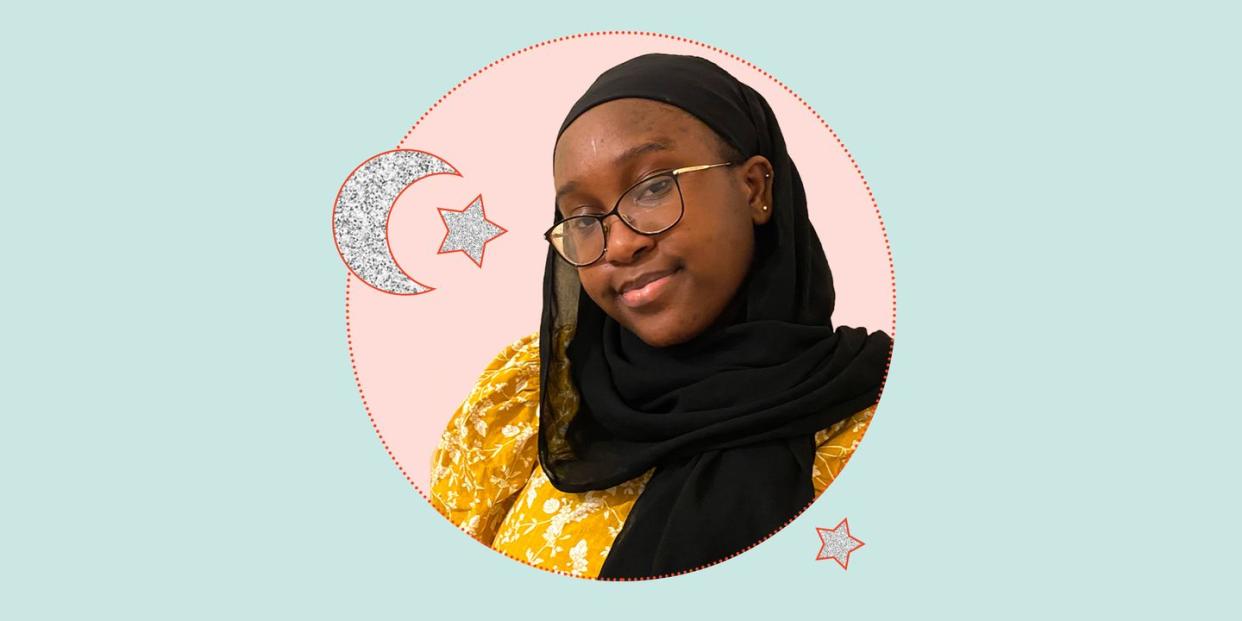As a Black Muslim woman, where do I stand?

“Black Muslims exist?”
I first heard this question when I was eight-years-old. I was in class, in my school in Ireland (where I grew up until I was 14) and my classmates were about to undertake their communion. While everyone else was excited about their white puffy dresses, I didn’t have the same energy. I raised my hand and proclaimed to everyone that I was a Muslim and would not participate in their communion.
This wasn’t a one-off incident. Throughout my life, I’ve continually encountered people who assume that because I am Black, I belong to a particular faith. Then there are those who don’t even believe in my existence. But in reality, Black Muslims make up 10% of British Muslims and I wish we were recognised more, because it’s tough being a minority within a minority.
I am Nigerian, more specifically Yorùbá, and being Muslim isn’t uncommon in my community. Growing up I attended madrasah (Qur’an lessons) and a mosque where everybody was Yorùbá. But school was tough, as there was no where to pray. I also didn’t wear my hijab in Ireland, apart from to mosque. Initially I was still very young so it wasn't obligatory, but as I grew up and noticed you didn't see many Muslim girls wearing the hijab in Ireland. Then there was the increasing media coverage linking Muslims to terrorist attacks, and the judgment that came with that, so I chose to continue on without it. Because I didn’t have this obvious marker of my religion, it meant people would question whether I really was Muslim. But I know lots of South Asian Muslims who aren’t questioned when they make the same decision, so this has always seemed unfair to me.
When I moved to London when I was 14 I thought living somewhere so multi-cultural would be different. It was overwhelming at first, as I’d never encountered so many Black people in one area. But I found that I was seen by my race first, rather than my religion. Why can’t I be seen as both? I never felt like I fit into both communities, especially when it came to issues of anti-Blackness and racism, because some parts of the Muslim community remain silent on it. Often people assume that all Black people are Christian or all Muslims are Arab or Asian when that isn’t the case for me. I’m not alone in this feeling – in a study carried out by the Black Muslim forum, 63% of participants said they did not feel like they belonged to the UK Muslim community.
I have seen, through comments on social media, that even some Muslims don’t believe Black Muslims exist. This leads to another problem because we can see that due to the prevalence of anti-Blackness, some non-Black Muslims have made derogatory statements about Black people. A survey carried out by Muslim Census among young Muslims found that 82% had witnessed anti-Black racism from their own family and friends, while 49% had faced anti-Black discrimination within a UK mosque or religious setting.
But things are slowly changing. When I reached out to Halimah, 20, who like me is Black and Muslim, she spoke of how she naturally gravitated towards her Asian peers when she was younger. “But if I did ‘something Black’ they would say it was unIslamic,” she recalls. “When really that was their anti-Blackness speaking.” Yet, recently, Halimah has seen a shift – with many taking to social media, particularly during the Black Lives Matter protests, which led to important conversations about anti-Blackness – to redefine these identities. People like Hafsah Dabiri, who is a highly successful young Black Muslim woman doing it all; presenting, editing and writing books. There was no representation like this for us in the past, but now future generations will have women like Hafsah as their role models.
Zainab Hassan, a London-based Nigerian makeup artist who has worked with the likes of Michaela Coel, is also making waves. As one of few Black Muslim women in the beauty industry, she has made her space and is dominating with over 50k followers. Shahd Batal, an influencer who worked with ASOS on a modest fashion collection for Muslim women, has opened this world up to Black Muslim women. When it comes to modest fashion trends, usually it's Asian or Arab influencers that get to work on campaigns, but to see Shahd leading this collection is so powerful. As modesty as it vital in our religion, to see a Black Muslim woman as the face of a modest fashion collection is very inspiring.
For a long time, Black Muslims have been ignored in both communities and on a wider level. Boxing people into distinct categories does not help. It can make people like me feel marginalised. We could take steps towards solving this issue by having that conversation and including Black Muslims in different books, movies and other aspects of society. Mostly, we should just let people be, instead of trying to define them to fit into what we think we know. Don’t ever question whether someone exists. It’s that simple.
SUBSCRIBE HERE to have Cosmopolitan delivered to your door and here for our newsletter to land straight in your inbox.
You Might Also Like


